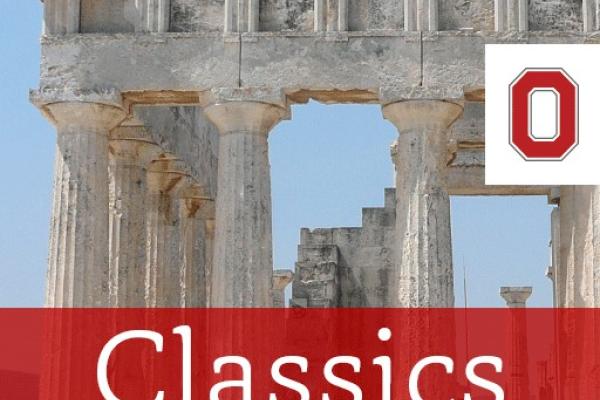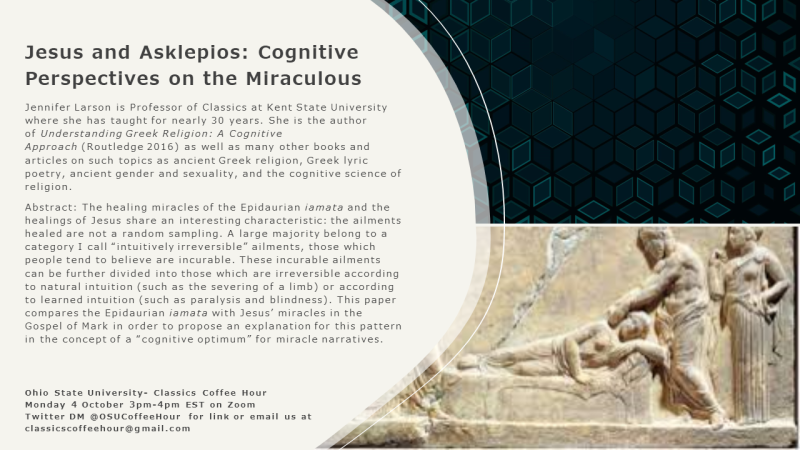
Jesus and Asklepios: Cognitive Perspectives on the Miraculous
Abstract: The healing miracles of the Epidaurian iamata and the healings of Jesus share an interesting characteristic: the ailments healed are not a random sampling. A large majority belong to a category I call “intuitively irreversible” ailments, those which people tend to believe are incurable. These incurable ailments can be further divided into those which are irreversible according to natural intuition (such as the severing of a limb) or according to learned intuition (such as paralysis and blindness). This paper compares the Epidaurian iamata with Jesus’ miracles in the Gospel of Mark in order to propose an explanation for this pattern in the concept of a “cognitive optimum” for miracle narratives.
Jennifer Larson is Professor of Classics at Kent State University where she has taught for nearly 30 years. She is the author of Understanding Greek Religion: A Cognitive Approach (Routledge 2016) as well as many other books and articles on such topics as ancient Greek religion, Greek lyric poetry, ancient gender and sexuality, and the cognitive science of religion.

